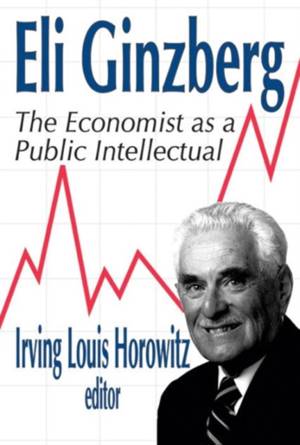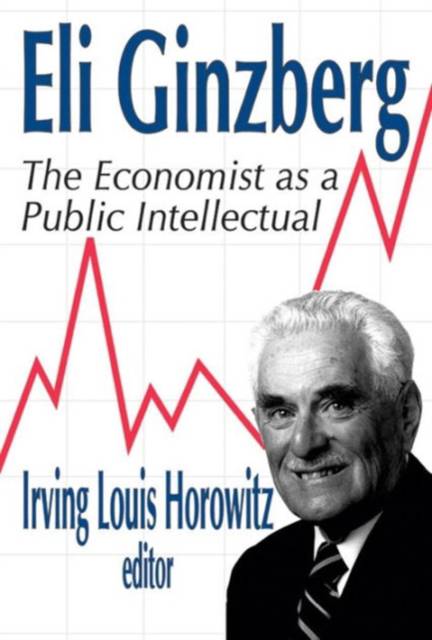
En raison d'une grêve chez bpost, votre commande pourrait être retardée. Vous avez besoin d’un livre rapidement ? Nos magasins vous accueillent à bras ouverts !
- Retrait gratuit dans votre magasin Club
- 7.000.000 titres dans notre catalogue
- Payer en toute sécurité
- Toujours un magasin près de chez vous
En raison de la grêve chez bpost, votre commande pourrait être retardée. Vous avez besoin d’un livre rapidement ? Nos magasins vous accueillent à bras ouverts !
- Retrait gratuit dans votre magasin Club
- 7.000.0000 titres dans notre catalogue
- Payer en toute sécurité
- Toujours un magasin près de chez vous
182,45 €
+ 364 points
Description
The world of Eli Ginzberg can readily be thought of as a triptych-a career in three parts. In his early years, Ginzberg's work was dedicated to understanding the history of economics, from Adam Smith to C. Wesley Mitchell, and placing that understanding in what might well be considered economic ethnography. His studies took him on travels from Wales in the United Kingdom to California in the United States. For example, the poignant account of Welsh miners in an era of economic depression and technological change remains a landmark work. His report of a cross country trip taken in the first year of the New Deal provides insight and evaluation that can scarcely be captured in present-day writings.The second period of his career corresponds to Ginzberg's increasing involvement in the practice of economics. He deals with issues related to manpower allocation, employment shifts, and gender and racial changes in the workforce. His writing reflects a growing concern for child welfare and education. In this period, his work increasingly focuses on federal, state and city governments, and how the public sector impacts all basic social issues. His work was sufficiently transcendent of political ideology that seven presidents sought and received his advice and participation.After receiving all due encomiums and congratulations for intellectual work and policy research well done, Ginzberg then went on to spend the next thirty years of his life carving out a place as a preeminent economist of health, welfare services, and hospital administration. It is this portion of his life that is the subject of Eli Ginzberg: The Economist as a Public Intellectual. What is apparent in Ginzberg's work of this period is his sense of the growing interaction of all the social sciences-pure and applied-to develop a sense of the whole. The contributors to this festschrift, join together to provide a portrait of a figure whose life and work have spanned the twentieth century, and yet pointed the way to changes in the twenty-first century. Eli Ginzberg from the start possessed a strong sense of social justice and economic equality grounded in a Judaic-Christian tradition. All of these aspects come together in the writings of a person who transcends all parochialism and gives substantive content to the often-cloudy phrase, public intellectual.Irving Louis Horowitz is Hanna Arendt Distinguished Professor Emeritus at Rutgers, the State University of New Jersey, where he has taught for over thirty years. He also serves as Chairman of the Board at Transaction Publishers. His writings include Radicalism and the Revolt Against Reason; Behemoth: Main Currents in the History and Theory of Political Sociology; and Taking Lives: Genocide and State Power.
Spécifications
Parties prenantes
- Editeur:
Contenu
- Nombre de pages :
- 274
- Langue:
- Anglais
- Collection :
Caractéristiques
- EAN:
- 9780765801326
- Date de parution :
- 30-06-02
- Format:
- Livre relié
- Format numérique:
- Genaaid
- Dimensions :
- 161 mm x 234 mm
- Poids :
- 530 g

Les avis
Nous publions uniquement les avis qui respectent les conditions requises. Consultez nos conditions pour les avis.





